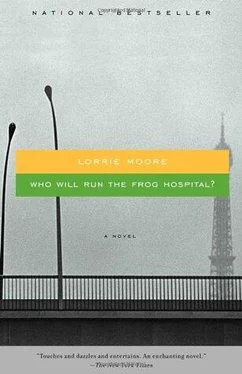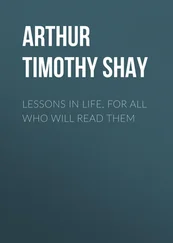Nonetheless, we adored him. If he didn’t know us, love us, even recognize us, it wasn’t because he was invested elsewhere in other children. We had no rivals for his affection, except perhaps Brahms, Dvořák, the daily crossword, and our mother — and even then, not often her. In his iconic way our father remained very much ours. And in the long shadows of his neglect, we fashioned our own selves, quietly improvised our own rules, as kids did in America, in the fatherless fifties and sixties. Which was probably why children of that time, when they grew up, turned out to be such a shock to their parents.
No doubt some part of us, of course, remained obediently reduced and cowed by our lack of a deeper possession of him, by the inattention, no matter how we thought we had resourcefully accommodated it. But these were lessons and deformities perhaps more conspicuous in adulthood than in childhood, where we were often obstreperous and eager for battle; we had faces and jeers and impudent hand signals, our eyes rolling, our hands quacking at our sides when a grown-up spoke. But later, for years, I referred meekly to any strongly felt and informed opinion, or weeks and weeks of my own research, as “my two cents’ worth.”
C-sharp, C-sharp, C-sharp!
In public my grown brother muted his own fiercely forged self to a collection of apologies and excuses and if-you-don’t-minds. Somehow we fell back from our original willful midnight constructions into ordinary, passive positions, mysteriously and in no time. Still we believed we could resume the other whenever we pleased, the Hieronymus Bosch, the artful splay, the Zappa arabesques, waiting for someone to walk in and see us like that and at last know who we really were deep down.
C-sharp!
Our father was unquestionably an impressive, solitudinous, autocratic figure. He had grown up in a family of cellists, Germanophiles, had even visited Germany in 1930, when he was ten; he had seen Hitler in a hotel lobby and was dazzled. But when all that celebrity and fine music played itself out so badly in history, he retreated with his passions, became a Baptist, listened, transported, to symphonies and tried to remember his children’s names. We loved him, in the inexplicable, snobbish way of children: he was the tallest and most intelligent father in all of Horsehearts — this was generally acknowledged — and that seemed at the time all we or any other child ever really needed of a dad. We took our cues from our mother, who admired him to the point of debilitation; she was “brought up to do that with men,” as she herself eventually came to declare. But we, as kids, did likewise. Sometimes I can still make my eyes well up — like a kid’s game of fainting at will — thinking of how much I wanted him to like me. Though any adult can do that, make themselves wail like babies for the love that as children they had desired so, sought so, distorted themselves so to get but never got. I once rode eighty blocks with a cabbie who kept saying over and over, “And he never hugged me, and he never kissed me,” until by Eighth Street he was weeping and I had to get out. It was unbearable.
Once, when I was nineteen, I gave my father a Father’s Day card meant for uncles and neighbors. “You’ve Been Like a Father to Me,” it read. His distance from us had become something of a family joke, but to him, staring at that card, it was unutterable and a shock; I don’t know what I was thinking — that he’d laugh too? — I don’t know, but the look of hurt that came across his face stunned me, confused me, sent me out for a striped tie and a different card: one with a demented sort of glitter and the word “Dad” writ large.
Years later, however, I grew angry; taking inventory of all he’d said and done, I came to think of him, bitterly, as a kind of Nazi. I was studying history. When I married a Jew, I waited for him to say something vague and dark, but he didn’t. He was courteous and formal, not uncharming. My husband, upon meeting my father, encountering for the first time his towering blend of Fred MacMurray, Fred Gwynne, Fred Astaire — all the Freds — whispered to me in a panicked way, “Your father is such a Father . An über -Father. The mother of all fathers.”
“Yeah,” I said, smiling. “The mother of all fathers.”
Sils was not really in love with her boyfriend, Mike, I was sure of it. I could tell it. He was tiring her out. You’d see them together: he all grinning and bursting, all raring to go, like an Irish setter, a tense dog, too much energy shining at the mouth, and she, exhausted from the night before, used up a little, unable to keep pace with this nineteen-year-old boy and his apartment, his revving motorcycle, his plans. Shortly after he met Sils he’d moved from Albany to Horsehearts to be near her. He worked highway construction, and the highway construction, too, had moved north. In the moist cool green of the early mornings, the humidity just beginning to catch the sun and promise heat, she would unstraddle his Harley, out in front of Storyland, when he dropped her off for work, and one could see her attempt to make the shift into day, into light, a Cinderella in reverse. She had a habit, when someone else was around watching, of raising her eyebrows and pointing at him when he spoke, and then in the nick of time returning her face to normal when he looked over at her. Or not. Sometimes he caught the edge of it, a wild bird that had disappeared down her throat, that she had madly swallowed to spare him, and he would stare at her.
“What?” he’d say. This was a demand for an explanation.
“Yeah, what: What do you mean, ‘What?’ ” She would then look to me, or whomever, for an audience, and smile. It was a sweet smile, and almost always resulted in her kissing him afterward. Nuzzling a little. She was a high school girl and this was the first sex she’d known. It drugged her with secrets. It had stolen her away, left her smile deranged, her hair a mess.
“How you doing today?” I asked, petting one of her shoulder blades on the way into the employees’ entrance.
“You still wanna go to the Sands tonight, I hope,” she said. The Sands was a divey shack on the lake, a tavern called Sans Souci, which had gotten corrupted by the local accent into “the Sands,” as if it were some Las Vegas nightclub. We had been going since the previous summer. We could get into all the bars. Though we were minors, we had working papers and hitchhikers’ thumbs and the fake IDs we’d made at the library, which had the only photocopy machine in town. We’d borrowed one of Sils’s brother’s driver’s licenses, photocopied it, then retraced our copies, substituting our own photos and names. We did not think of any of this as a crime. Crimes weren’t crimes; laws weren’t really real; nothing applied. Nothing applied to us. We were set apart by adolescence and geography; the country was in upheaval, there was Vietnam and draft dodging and rock music and people setting themselves on fire. Laws seemed to be the enemy. So we dispensed and dispatched, ceased and desisted: we made up our own rules, and they were loose. We were inventing things, starting over, nothing was wrong. Tin soldiers and Nixon coming . Everything was a ticket out; everything was merging, proceeding, leaving home — all the different forms this took. Love. Peace. Smile on your brother everybody get together .
And we were the sensible girls. We were known as such. We baby-sat. We scored high on Iowa Tests. No matter that sometimes at night we were at the railroad tracks, drunk on 7-Up and whiskey. That we enticed each other out to dance bars by holding the phone next to a stereo playing Deep Purple or Maggie Bell or Grand Funk Railroad until the other said, “OK, OK, let’s go!” The truly wild kids had already left for the pipeline in Alaska or for Boston or Broadway or the med units of Da Nang.
Читать дальше












